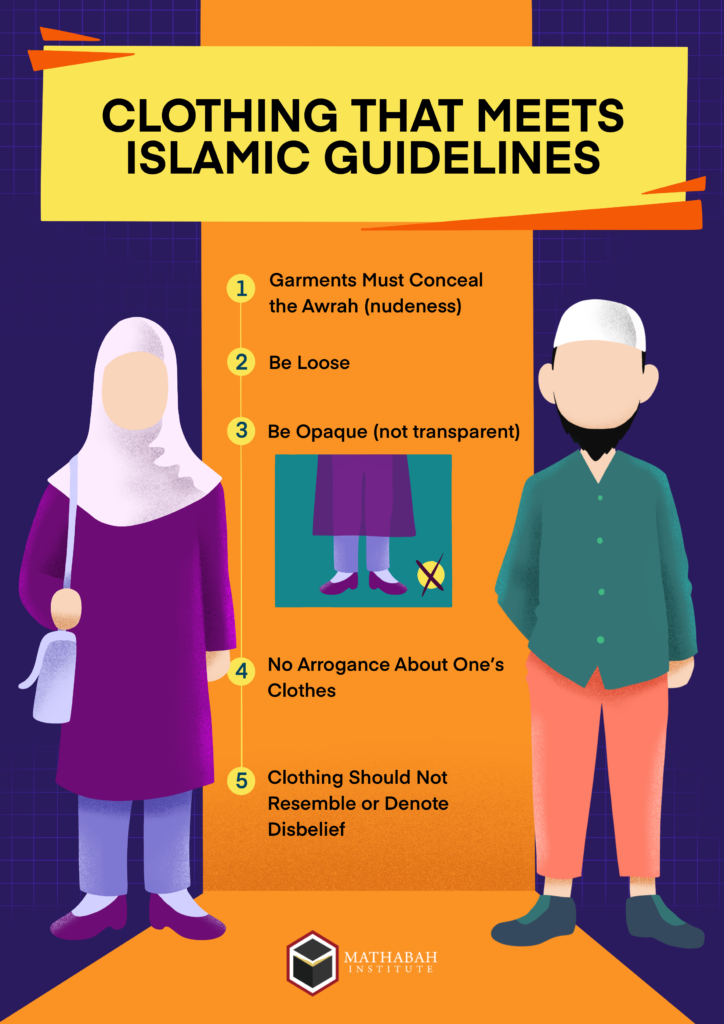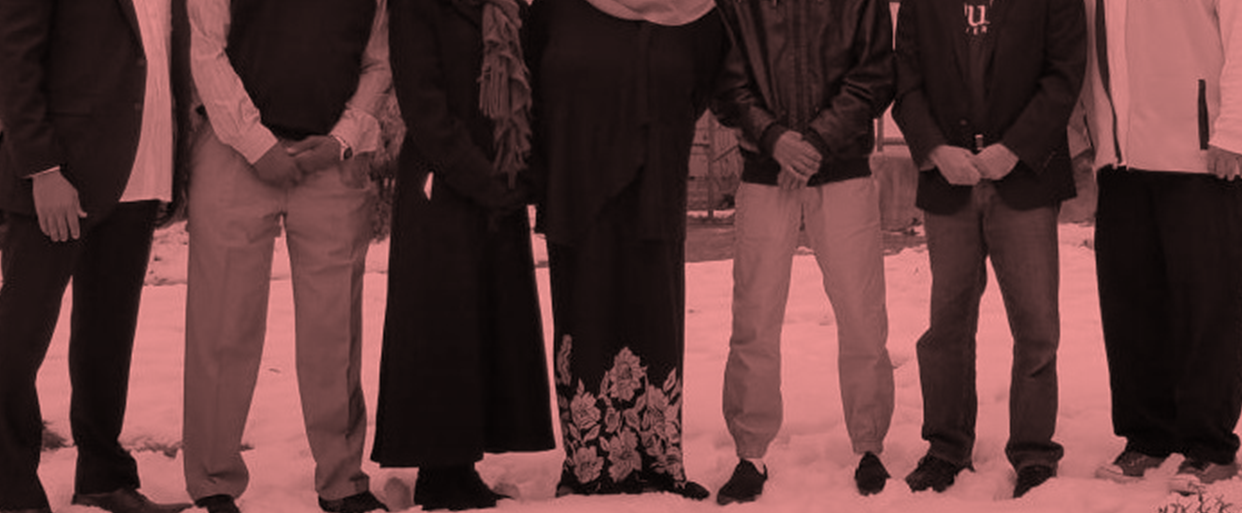By Yūsuf Badāt
Introduction:
Clothing is a religious requirement in Islam. Nudity or remaining unclothed is deemed against both the natural disposition of humans as well the religion. When Ādam and Eve were unclothed in Paradise, they quickly concealed their nudity with tree leaves. Clothing serves to beautify, cover and protect humans.
The Four Levels of Islamic Attire:
Mandatory Islamic Attire
The minimum mandatory apparel that meets Islamic guidelines, is the clothing that covers the ʿawrah (nudity) which is for males from the navel to the knee, and for females, the entire body other than the face, hands and feet.
Praiseworthy Attire
This is the clothing that resembles the clothing of the prophets, saints and the pious and is noted as respectable and decent according to the culture and custom of one’s geographical region.
The Permitted Apparel
The clothing that displays beauty, elegance and style, falling within the parameters of the islamic requirements.
The Disliked or Forbidden Apparel
The clothing worn to display arrogance and or to belittle others. The clothing that entails wastage, to deem a specific style or colour of clothing as mandatory, for males to adopt the clothing specificaly worn by women or vice versa, and or apparel worn that exclusivly is identifyiable with religions other than Islam.
Other Important Factors for Islamicaly Appropriate Clothing
- Clothing should be opaque and not transparent.
- Clothing should be loose and not so tight that one’s figure (body shape) can be seen.
- Men are forbidden from wearing silk.
- Clothing must not be worn with arrogance
- Clothing should be respectable
- Clothing should be neat and clean
- It is encouraged for men to keep all garments including pants above ankles.
“God has made for you garments which protect you from the heat and garments which protect you in war.” (Qur’an 16:81)
“So the devil made Adam and Eve err, through deception. When they tasted [the fruit] of the tree, their private parts became apparent to one another, and they began to fasten together over themselves from the leaves of Paradise. Their Lord [then] called to them, “Did I not forbid you from that tree and tell you that Satan is to you a clear enemy?” – (Qurʾān 7:22)
“Whoever leaves [valuable] attire out of humility to God, while they are able to [afford it], God will call them out before the creation on Judgement Day.” – Tirmidhī
“Indeed God loves to see the results of His favours upon His Slaves.” – Tirmidhī
It was narrated from Abū Al-Aḥwas, from his father, that he came to the Prophet (peace and blessings upon him) wearing shabby clothes. The Prophet (peace and blessings upon him) said to him, “Do you have any wealth?” He replied, “Yes, all kinds of wealth.” He then asked, “What kinds of wealth?” He responded, “God has given me camels, cattle, sheep, horses and slaves.” He then instructed, “If God has given you wealth, then let the effect of God’s blessing and generosity be seen on you.” – (Nasaʿī)
“There is nothing wrong with any one of you, if he can afford it, buying two garments for Friday, other than his daily work clothes.” – (Ibn Mājah)
“Eat, give charity and clothe yourselves, without being extravagant, and without showing off.” – (Nasaʿī)
“The Prophet (peace and blessings upon him) often wore linen, wool and cotton [garments]” – (Zād Al-Maʾād)
“Refrain from [wearing] the garments [exclusively] for monks. To adopt a monastic life or to resemble a monk is an act against my teachings.” – (Ṭabrānī)
“The Messenger of God (peace and blessing be upon him) cursed men who imitate women and cursed women who imitate men.” – (Bukhārī).
“The Messenger of God (peace and blessing be upon him) cursed a man who puts on the dress of women, and a woman who puts on the dress of men.” – (Abū Dāwūd).
“The curse of God is upon those who are clothed yet naked [due to their garments being tight, exposing their body shape].” – (Marwiyyāt Al-La’an)
“Jarīr Ibn Abdillah said that at times a person wears cloths yet is naked [due to the clothing being transparent, not concealing or very tight].” – (Ṭabrānī)
References:
Qurʾān, Bukhārī, Tirmidhī, Nasaī, Abū Dāwūd, Ibn Mājah, Musnad Aḥmad, Bayhaqī, Ṭabrānī, Al-Jāmi Al-Ṣaghīr, Iḥyā Al-ʿUlūm, Fayḍ Al-Qadīr, Fatḥ Al-Bārī, Zād Al-Maʿād, Nayl Al-Awṭār, Sharḥ Muhaddhab, Fatāwā Al-Hindīyyah, Al-Baḥr Al-Rāiq, Al-Dur Al-Mukhtār, Kashf Al-Ghummah, Imdād Al-Fatāwā, Al-Mughnīy, Majma’ Al-Zawāid, Taysīr Al-Wuṣūl





